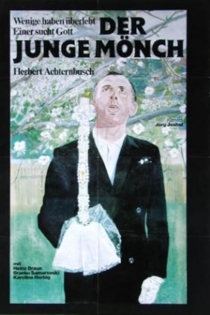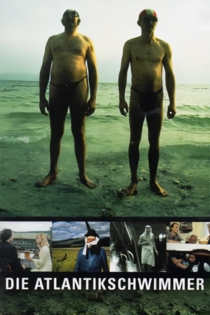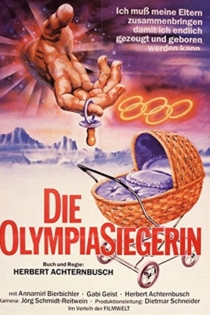
Herbert Achternbusch
1938 (87 лет)In the world of cinema, his career fits approaches independent, mostly defined by a position too personalistic, provocative, that has left a deep imprint on works eminently conceptual and avant-garde, as well as suggesting in criticism of the subjects addressed (religion, society, geographical framework in which wandering people, etc.). His films just transcend the commercial sector; It is one of the most followed by seekers of original, stories of passes in areas interested in film culture. His anarchist surrealistic films are not known to a wide audience in Germany, although one of them, Das Gespenst (The Ghost), caused a scandal in 1983 because of its alleged blasphemous content. Werner Herzog, a director of the New German Cinema, based his film Heart of Glass on a story by Achternbusch.
Der Neger Erwin
Herbert Achternbusch
Herbert Achternbusch, Annamirl Bierbichler
Herbert Achternbusch wrote, directed, and starred in this comedy that pokes fun at the German way of subsidizing the art of creating movies and documentaries. He is a filmmaker playing the role of a filmmaker in a film he is making, and as a result, the film jokes might be a little abstruse for some of the viewers. The story centers on a "film" man just out of prison (Achternbusch) who has to make a living with his craft again. He is followed by a reporter who wants an interview, and winds up at an inn called "Zum Neger Erwin," run by a woman whom he convinces to be the leading lady in his planned production. As the story continues, the filmmaker finds ample excuses to pan the financial powers that be, and to paint the beknighted and talented seekers after funds as Neger Erwins, slaves to the funding process.
Der Neger Erwin
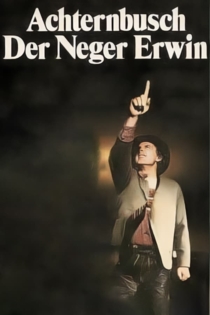
Attwenger: Attwengerfilm
Hans Peter Falkner, Florian Flicker
Herbert Achternbusch, Markus Binder
A portrait of Attwenger, the duo from Upper Austria (Markus Binder and Hans-Peter Falkner). The attempt to unite the worlds of Austrian folk music and hip-hop has already succeeded in the music of Attwenger.
Attwenger Film

The Enigma of Kaspar Hauser
Werner Herzog
Bruno S., Walter Ladengast
The film follows Kaspar Hauser (Bruno S.), who lived the first seventeen years of his life chained in a tiny cellar with only a toy horse to occupy his time, devoid of all human contact except for a man who wears a black overcoat and top hat who feeds him.
The Enigma of Kaspar Hauser
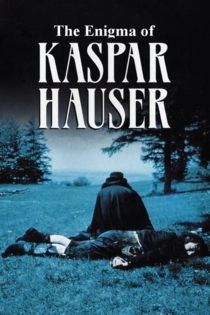
Wohin?
Herbert Achternbusch
Herbert Achternbusch, Annamirl Bierbichler
Several comedy situations are strung together for this offbeat satire. An unassuming businesswoman is discovered to be the mastermind behind a terrorist organization, and a disgruntled waitress has looks that can kill, literally and not figuratively speaking. In another tacky passage, played as a reoccurring gag, an official is infected with the AIDS virus after suffering a bite from the businesswoman.
Wohin?

Das Andechser Gefühl
Herbert Achternbusch
Herbert Achternbusch, Margarethe von Trotta
An anxious teacher (played, as is the lead role in all his films, by the director) sits in a beer garden on the hill of the Andechs monastery. While flies drown in his mug of beer, he confronts a life of failure: the wife he ignored, the child he neglected, the teaching duties he has shirked, and his doomed efforts at winning tenure from school officials. Only a dream from the past-the memory of a former liaison with a film star with whom he shared "the Andechs feeling, a feeling that we are not alone" - provides sustenance. Despite an unexpected series of events, longing in Achternbusch's world ultimately remains stronger than fulfilment and thirst better than beer.
Das Andechser Gefühl
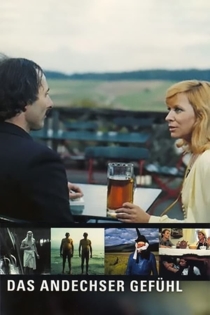
Hades
Herbert Achternbusch
Herbert Achternbusch, Jens Harzer
This German political drama from iconoclastic filmmaker Herbert Achternbusch takes a slightly askew look at neo-Nazis and the Holocaust. His non-story (a typical trait of Achternbusch films) is divided into three parts. The first introduces Hades, an eccentric half-Jewish coffin maker. Also introduced are the women in his life. The second part depicts different scenes from the city's Jewish ghetto. Included are disturbing film clips from Nazi propaganda footage that shows the naked corpses of starved Jews piled up in the streets with the insinuation that the heartless relatives of the dead would unceremoniously toss them out when they expired. In the third part, Hades is buried at sea. In between, neo-Nazis march unopposed in Munich, Hades battles skinheads, and Hades' shop is repeatedly vandalized. A scene where Hades is fascinated with death is also seen.
Hades
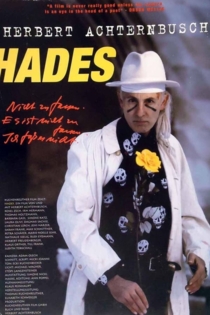
I Know the Way to the Hofbrauhaus
Herbert Achternbusch
Herbert Achternbusch
Comedy shot without a script on Super-8mm as a silent film, with intertitles later inserted between scenes. What unfolds is a familiar Achternbusch tale in which the protagonist (here his alter-ego, Hick) is driven by a mad longing and becomes irretrievably lost. Unable to meet the demands of the workaday world, Hick wanders alone through the city and, as in many of Achternbusch's films, enters an intermediate realm in which the dead interact with the living: he encounters and falls in love with a mummy, searches for an Egyptian queen, and stalks the inner regions of the hereafter, which lie in the middle of Munich.
I Know the Way to the Hofbrauhaus


